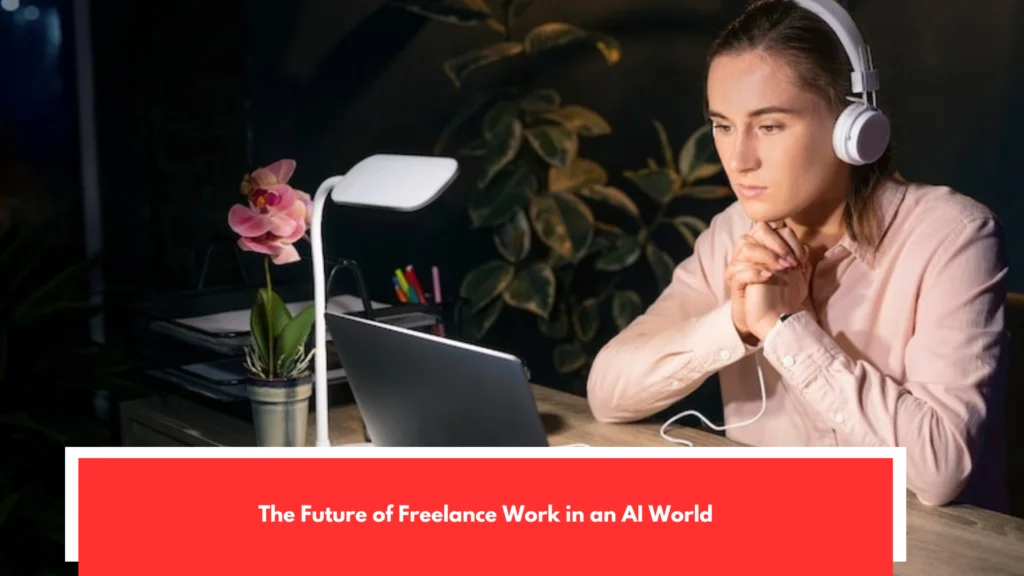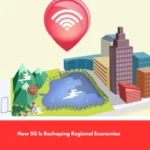The Future of Freelance Work AI is revolutionizing the world of work at machine speed, and not just by doing more, but by doing it better. Millions of gadgets have understood that with AI, any company can enhance the decisions it makes, reduce half of the scientific (operational) generals, automate the roboticism of Homeland, and simply by doing so. As hybrid work environments continue to change, companies must leverage technology that rejuvenates the employee experience and maximizes workplace productivity. It’s not a question of whether AI will transform the workforce, but how companies can do the same and remain in demand.
Bottom line: AI will create 78 million new jobs by 2030, but 92 million jobs will be replaced along the way. Since 60% of employees will need ongoing training but lack the necessary resources, companies need to prepare quickly. Those in which AI is used to automate human work are the ones that will last. Can your company adapt to the future of work? The word AI is no longer a mere fad: it’s a primordial power that has already revolutionized the way we work. According to the World Economic Forum’s Future of Jobs 2025 Report, AI and IT are poised to create a combined 78 million jobs globally by 2030, despite eliminating 92 million.
How does AI impact freelancing?

This is one of the most attractive advantages of using AI at work. For employees, once they are connected to Intelligent Automation solutions, their productivity rates increase significantly. They can now stop assigning menial tasks (repetitions) not to an intern or a colleague, but to a digital tool. This frees them up time to focus on more important and high-impact tasks. Those who collaborate with AI as a team also help reduce human error and leave more room for creativity and innovation.
As a technically public entity, the City Council will tend to open up data, also with the aim of financing consumption through micropayments, and while there will always be our focus on “doing the best and always improving,” the guidance is still valid. That the development and adoption of AI technologies will guarantee the collapse of their jobs is what worries many most. However, experts believe it will generate more jobs than it will displace them. A curious territorialization of the future of work in the LinkedIn report shows the impact that artificial intelligence can have on different professions.
What are the benefits of AI for freelancers?

For example, a device like the GAI can increase the patent that systems technicians have for skills by 96%. It’s worth mentioning that this number, which I want to add to the fourth, may be available to nurses, whether they have physics or not, is commensurate with the 4% in the Associations themselves, which is related to the work that interferes with them. These are the numbers, as an approximation. Furthermore, they will provide the appropriate employment for certain jobs that, in this new era, are clearly in demand.
This applies to machine learning engineers, AI data scientists, AI product owners, and intelligence engineers, among others. The use of AI in the workplace leaves your device to focus on more important tasks and add more value in all your jobs. But this technological and digital change, along with it, requires you to acquire new skills to work successfully with these technologists. Employee AI literacy will become an important fulcrum for companies that must address this from now on. The new development is that education is one of the most promising sectors for applying AI.
What are the best AI tools for freelancers?

Therefore, companies can count on learning platforms that use AI learning tools training, renewal, and retention for their staff in that area. Many professionals have already begun to read more about AI and how to use it in their work. The LinkedIn report provides irrefutable proof of this trend. According to its findings, an average of 75% of LinkedIn users are including terms like “GAI, ChatGPT, Prompt Engineering, and Prompt Crafting” in their profiles. McKinsey indicates that $4.4 trillion will increase globally as a result of AI. However, significantly, only 1% of companies have AI fully implemented in their workflows.
Although there is a gap in execution, enthusiasm is high, with 92% committed to investing in AI in the next three years. The speed of adoption is impressive: management’s endorsement of surprising success and 13% of employees currently investing in generative AI have been at least 30 years old. The impact of AI comes in different amounts depending on the sector. According to the Forbes Technology Council, the healthcare, finance, manufacturing, and retail sectors are experiencing significant changes.
Conclusion

In the healthcare sector, AI-based diagnostic tools are enabling patients to receive better health referrals and faster and more accurate diagnoses. Financial firms have been revolutionizing risk management and fraud detection with AI algorithms for several years now. New needs are emerging in the face of the green transformation, especially those related to sustainability. Billy Ray, CEO of ISAGCA, explains to Expansión that the World Economic Forum report places Renewable Energy Engineers and Environmental Protection Professionals among the fastest-growing jobs.
Some companies are already experiencing the benefits of AI and provide a glimpse into what preparation looks like. These high-performing AI companies are not only experimenting with new tools but are also training them across the enterprise. They are three times more likely to train more than 30% of their workforce in the next three years than others, according to McKinsey. According to their statements, rather than rushing to cut costs, their strategy is to generate new areas of value.





